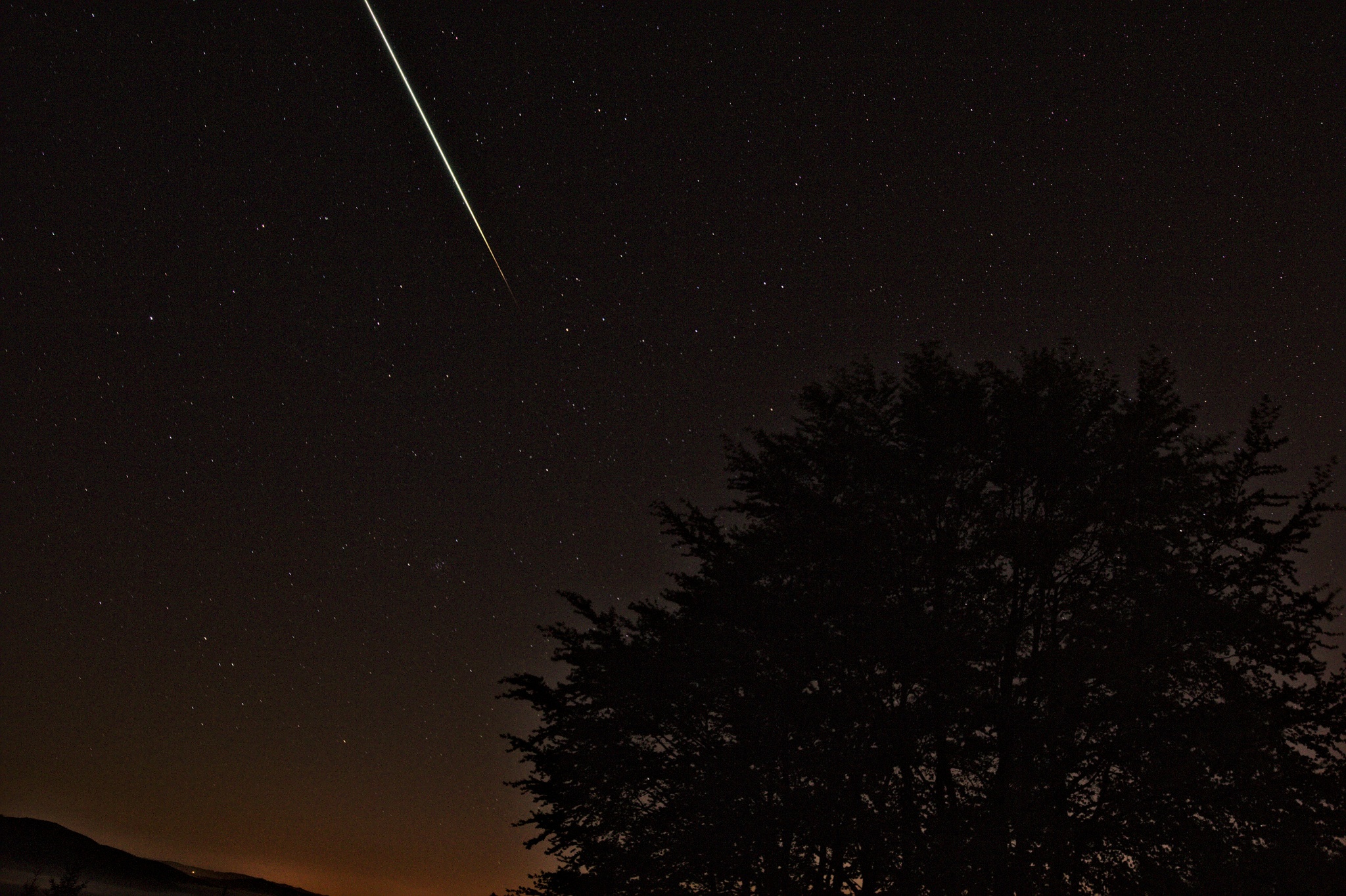by Sherry Rind
Surely one of the more surprising observations in the natural world is that stones can fall from the sky.
~Introduction to Astronomy
Ten thousand tons each year.
One wobble off course or an accidental congruence
of gravitational fields and
down they go
to be zapped like bugs in our trap
of nitrogen and oxygen.
Most burn away and miss our heads
as we schlep groceries to the car or take out the garbage,
another day overcoming
the randomness of the universe.
Space garbage, like our cells,
carries the strands of its origins,
the primary mess
of dust that spun into our star,
tossing off the leftover lumps
of Earth and Jupiter and meteorites,
some of which hide among the garden rocks
disguised as granite or pocked, melted iron.
If you find a grain-sized rock on Antarctic ice
chances are it’s a meteorite
but in the ordinary way, it’s difficult
to know if a lump in the hand
is trash or rarity.
This perpetual litter has no end in our short sight,
a mass we apprehend no more
than the volume of garbage we toss
into oceans and heap in pits:
boats, cars, plastic rings encircling
the throats of birds, bottles, dishes, foam trays
smeared with fatty remains of supper.
Some of it breaks and reforms like meteorites
but never escapes our gravity, carrying the stories
of our little eruptions
and the long fall through time.
About the Author
Sherry Rind is the author of four out-of-print collections of poetry and editor of two books about Airedale terriers. She has received awards from the National Endowment for the Arts, Anhinga Press, Artist Trust, Seattle Arts Commission, and King County Arts Commission. Her poems have appeared recently in Cloudbank, Marathon Literary Review, Crosswinds, Weatherbeaten, and Shark Reef Review.


